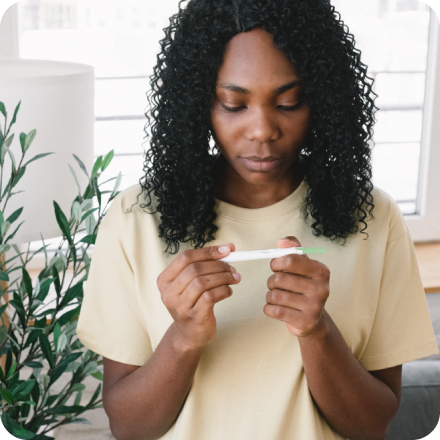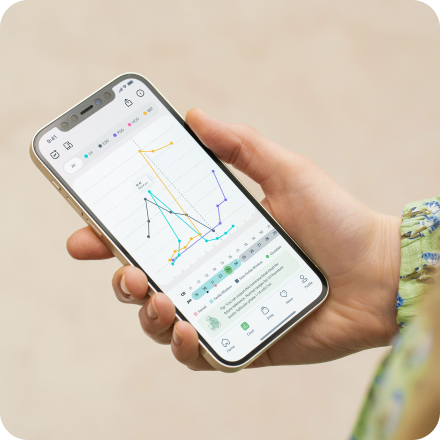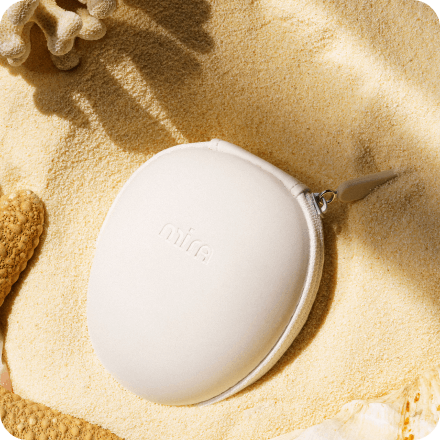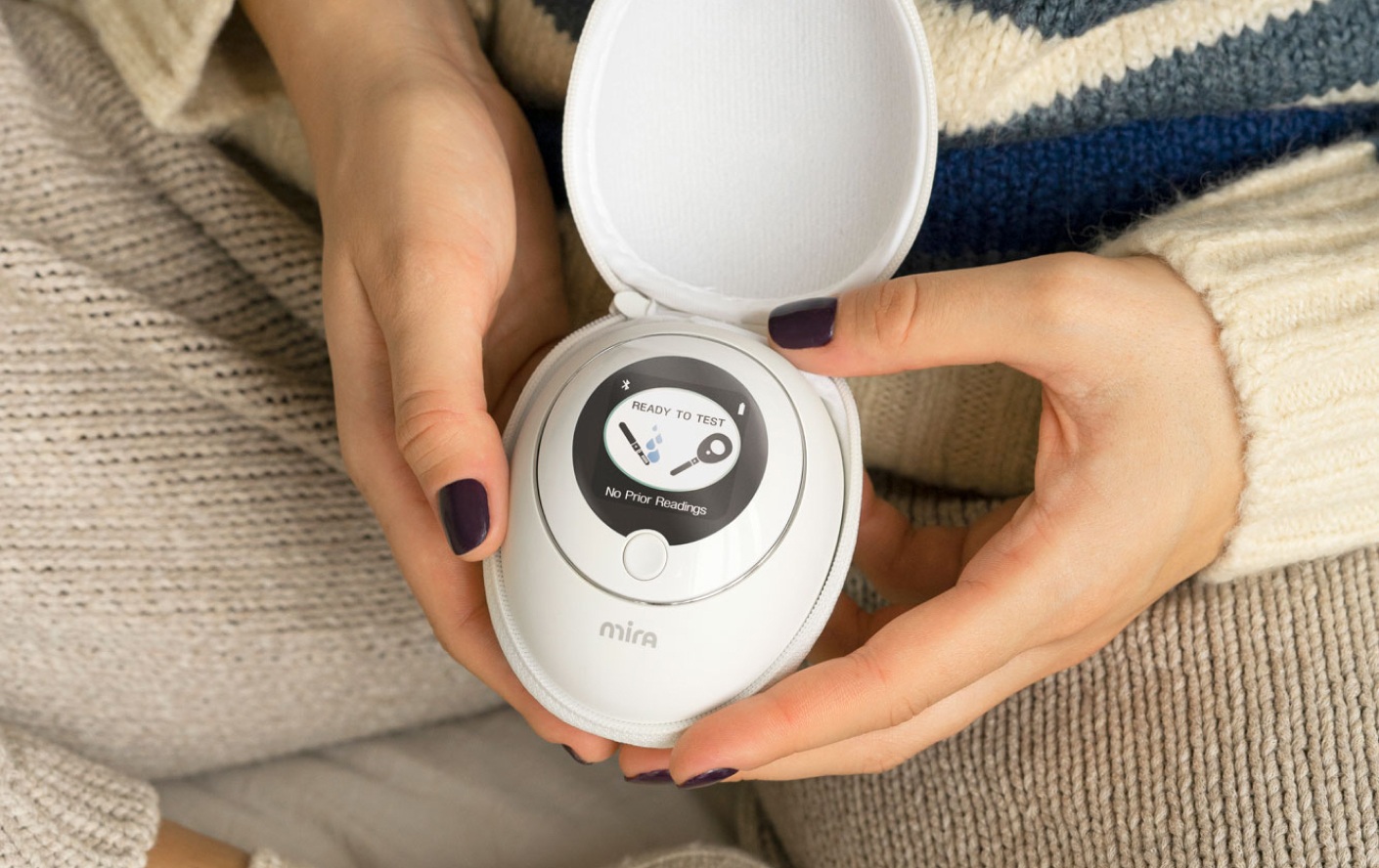Can You Get Pregnant on Birth Control? Know Your Risks
It’s no secret that modern birth control methods in the form of pills, patches, and IUDs have been game changers in the world of contraception.
However, it’s important to remember that not all birth control methods are created equal – and some are more effective than others at preventing pregnancy.

In this article, we’ll cover everything you need to know about the chances of getting pregnant when you’re on birth control, how different contraception methods can vary in effectiveness, and potential signs that your birth control has failed. We’ll also cover a few common usage mistakes and health events that may interfere with your birth control’s effectiveness.
Can You Get Pregnant on Birth Control?
In a word, yes! Even when used perfectly, no form of contraception is 100% effective.
What Are the Chances of Getting Pregnant on Birth Control?
Different types of birth control have different success rates.
For example, with perfect use, the standard pill is approximately 99% effective – meaning only one out of every 100 users will become pregnant. However, under typical conditions, that rate falls to 91% – meaning an estimated nine out of every 100 users will become pregnant every year. These rates are similar to those of the ring and the patch.
| Birth Control Method | Effectiveness | How it Works |
| Hormonal Methods | ||
| Combination Pill (Estrogen + Progestin) | 91% | Prevent ovulation and thickens cervical mucus |
| Progestin-Only Pill | 91% | |
| Implant | 99.95% | |
| Injections | 94% | |
| Patches | 91% | |
| Vaginal Ring | 91% | |
| Barrier Methods | ||
| Male condom | 82% | Blocks sperm from reaching the egg |
| Female condom | 79% | |
| Diaphragm | 88% | |
| Cervical Cap | 77-83% | |
| Sponge | 76-88% | |
| IUDs | ||
| Hormonal | 99.2-99.8% | Preventing sperm from fertilizing the egg |
| Copper | 99.2-99.8% | Making the uterine environment hostile |
| Fertility Awareness | ||
| Calendar Method | 76% | Abstaining from sex during fertile window |
| Cervical Mucus Method | 76% | |
| Basal Body Temperature (BBT) Method | 76% | |
| Sterilization | ||
| Tubal ligation | 99.5-99.85% | Blocking the fallopian tubes |
| Vasectomy | 99.5-99.85% | Preventing the release of sperm |
| Figures based on data provided by The American College of Obstetricians and Gynecologists. | ||
The reality is that the more a method of birth control relies on you to use it perfectly, the higher the likelihood that it can fail. This is why many doctors recommend having a backup form of birth control in place if you are serious about trying to prevent pregnancy.
Common Myths and Misconceptions
Myth: Birth control Is 100% effective
Unfortunately, no birth control method is 100% perfectly effective at preventing pregnancy. If you are serious about not wanting to get pregnant, it’s a good idea to have a backup method in place.
Myth: Missing a pill will automatically lead to pregnancy
Missing a birth control pill decreases the overall effectiveness of your birth control. This doesn’t mean that you will automatically get pregnant if you have unprotected sex – instead, it means that you may need to be more careful when having sex as your risk of pregnancy is higher.
Myth: You cannot get pregnant while on your period
While it is true that your chances of getting pregnant during your period are low, it doesn’t mean that it is impossible. Factors such as your cycle length, ovulation timing, and when you’ve had sex can all influence your chances of getting pregnant during your period.
Myth: Antibiotics always decrease the effectiveness of birth control
Only some antibiotics are known to decrease the effectiveness of certain types of birth control. If you have been prescribed antibiotics, ask your doctor if your medication is likely to interfere with your method of contraception.
Myth: Emergency contraception can cause abortion
Emergency contraceptives work by inhibiting or delaying ovulation. They do not induce miscarriage or cause harm to a developing fetus.
How You Get Can Pregnant While on Birth Control
The key to birth control is following the directions precisely in order to maximize its effectiveness.
But even then, there are certain instances where effectiveness may be reduced. When one or more of these situations occur, your contraception is not as effective, and your chances of getting pregnant on birth control increase.
Here are a few common mistakes and health events that may reduce the effectiveness of your birth control.
Wrong usage
Forgetting to take pills
Missing one or more pills results in your system not getting the right hormones in your bloodstream to prevent pregnancy. You need consistent levels for hormonal birth control to work properly – and even missing one dose can reduce effectiveness.
It’s also important to take your birth control pill at the same time each day. These medications rely on consistency, and taking them at inconsistent times will increase your risk of birth control failure.
Incorrect use of barrier methods
Barrier methods of birth control come with explicit instructions for proper use. If any of the steps are not followed, the risk of birth control failure increases. For example, the male condom should be put on before any genital contact, used throughout intercourse, and then carefully removed after ejaculation. Mistakes during any of these steps increase the risk of pregnancy.
For further information on correct condom usage, check out the Centers for Disease Control’s Condom Fact Sheet.
Incorrect insertion or positioning of IUDs
Although rare, it is possible for your IUD to become displaced, and this can negatively impact its effectiveness. Causes of IUD displacement include incorrect insertion, incorrect fitting, abnormal uterus positioning, or using a menstrual cup. If your IUD is out of place, you may experience symptoms such as changes in the length of the IUD’s string in the vagina, being able to feel the bottom of the IUD, abdominal pain or cramping, and unusual vaginal discharge.
If you suspect that your IUD is out of place, do not try to reposition it yourself. Instead, make an appointment with your doctor immediately for further advice and next steps.
Medication interactions
Certain medications can also interfere with the effectiveness of your birth control. For example, birth control pills are absorbed into your gastrointestinal tract and then metabolized in the liver by certain enzymes. Other medications can be affected by these same enzymes, and this can lower the absorption rate of your birth control pill. Even certain supplements can lower absorption and make your pill less effective.
If you are taking a hormonal form of birth control, always ask your doctor whether or not any additional medications or supplements can interfere with it. This is the only way to know for sure if the effectiveness of your birth control is impacted.
Health conditions
Gastrointestinal issues
Research suggests that the effectiveness of the birth control pill may be reduced in individuals with certain gastrointestinal issues – such as chronic inflammatory disease, diarrhea, ileostomy, or jejunoileal bypass.
If you have a chronic condition that affects your digestive system, we recommend asking your doctor about alternative methods – such as patches, rings, or IUDs – that may be more effective for you.
Vomiting or diarrhea
Vomiting or diarrhea can interfere with your body’s ability to absorb the hormones in oral contraceptives. If this is a one-off occurrence – for example, you recently had a stomach bug – it is recommended to take another pill and use a backup form of birth control. If this is a regular occurrence, you may want to explore other forms of birth control that are better suited to your medical situation.
Weight Changes
There is some research that suggests certain oral contraceptives may be less effective in individuals who are overweight. This is why it’s important to have regular checkups with your doctor – they can assess which birth control method(s) are the most suitable for you based on your health history.
Damage or expiration
Like any medication or medical device, contraception methods should never be used if they are damaged or expired. Whether you are using a condom or opening up a new box of oral contraceptives, always make sure to check that the packaging is intact and that the product is in date. This helps to maximize the product’s effectiveness in preventing pregnancy.
Signs and Symptoms of Birth Control Failure
In cases of birth control failure – i.e. you become pregnant – it’s possible to experience any of the following early signs and symptoms of pregnancy.
Missed period
A missed period is a tell-tale sign of pregnancy. The best way to monitor your cycle patterns, even while taking birth control, is to track your period using a calendar app.
Spotting or bleeding
Spotting or bleeding due to pregnancy is often lighter in volume than your period and occurs at an unexpected time – you may also experience cramping.
Breast tenderness
Fluctuating pregnancy hormones can lead to breast tenderness and sensitivity. This can make your breasts feel heavier or “fuller” than normal, and your nipples may darken.
Nausea or vomiting
Again, fluctuating hormones are to blame for feelings of nausea or “morning sickness” in early pregnancy. On average, symptoms of morning sickness typically begin around 4-6 weeks after conception.
Changes in appetite
Strong food cravings (or aversions) and changes in appetite are also common in early pregnancy. You may also experience changes to your sense of taste and smell.
Mood swings
It’s common to experience a range of emotions such as happiness, sadness, irritability, and even anger. This is driven in large part by the rapid fluctuation of hormones in early pregnancy.
Unexplained weight gain
As the body prepares for pregnancy, it’s normal to gain some weight. This may come as a surprise if you are on birth control and your day-to-day diet and exercise routine have not changed.

How to Reduce Risk of Pregnancy While on Birth Control
Take your pill at the same time daily
To keep your hormone levels consistent, take your pill at the same time every single day. There are plenty of reminder apps to help you remember. Or, you can pair it with an activity that you do every day at a specific time – such as right before you brush your teeth in the morning. This is especially important for progestin-only pills, since hormone levels can drop quickly and you may ovulate, which increases your chance of getting pregnant.
Consider taking your placebo pills
Many people like to skip the placebo pills as a way to take a break. However, it’s a good idea to take them anyway in order to keep your routine intact. Even though it may not be medically necessary, it helps to keep your behavior consistent.
Wait for birth control to be effective before having sex
Depending on the type of birth control, it can take several days or weeks for it to be effective. This means that you are still at a higher risk of pregnancy when you’re having sex. We recommend either avoiding sex or using a backup method for extra protection while waiting for your birth control to kick in.
If you miss a pill, follow instructions for your birth control brand
Every manufacturer is different, but if you miss a pill, check the instructions to see what your brand recommends. Often you’ll be advised to take the next dose right away, but even so, the effectiveness will be decreased since your schedule of hormone release has been altered.
Consider other effective birth control methods like IUDs or implants
If you struggle to take your pill at the same time every day, or if your lifestyle simply doesn’t allow it, consider other effective birth control methods. IUDs, implants, and the shot all require less daily effort than pills and they typically have a higher effectiveness rate.
Check that other medications won’t affect birth control
Certain medications may reduce the effectiveness of your birth control, especially if they are absorbed through your digestive tract. If you’re on any other medications, check that they won’t affect your birth control or consider switching methods. If you have any questions or concerns, go ahead and check with your doctor and they will be happy to assist you.
Don’t use St. John’s wort
St. John’s wort is a popular herbal supplement available in teas, tablets, liquids, and as a cream. It’s often used to treat depression or menopausal symptoms, but it also interacts with other medications and can cause serious side effects. Among the interactions, the effectiveness of birth control is greatly reduced when taking this supplement. It’s been well known to disrupt oral contraceptives, but it may also make other hormonal contraceptives ineffective as well.
If you made a mistake, use an emergency contraceptive
If you’re concerned that you’ve made a mistake with taking your birth control, use an emergency contraceptive if you have had sex to keep yourself protected. You’ll need to act fast – but both the morning-after pill (known as Plan B) and IUDs are effective methods of emergency contraception.
What Happens if You Get Pregnant on Birth control?
If you do find out that you are pregnant on birth control, it’s important to stop taking any oral contraceptives immediately. This is especially true if you are taking a progestin-only pill (i.e. the mini pill), as research suggests that taking this type of pill in early pregnancy may increase your risk of ectopic pregnancy.
It’s also a good idea to make an appointment with your doctor. They can run additional tests, estimate how far along you are, and provide guidance on navigating an unexpected pregnancy.
Early Signs of Pregnancy While on Birth Control
The earliest symptoms of pregnancy can be easy to miss while on birth control. This is because many of the side effects of birth control are similar to the early symptoms of pregnancy, making it complicated to assess your symptoms.
In general, early signs of pregnancy include a missed period, nausea, breast tenderness, fatigue, and headaches. Since your hormone levels are altered in both pregnancy and while on birth control, it’s common to experience similar side effects and miss the early signs.
Getting Pregnant on Birth Control FAQs
Can birth control pills harm my baby?
According to the Mayo Clinic, there is an increased risk of ectopic pregnancy when taking a progestin-only birth control pill. This type of pill is often called the “mini-pill”.
There is no evidence that suggests other types of oral contraceptives are harmful to a baby in early pregnancy.
How many birth control pills do you have to miss to get pregnant?
Even just missing one pill can increase your risk of pregnancy. This risk increases with the number of pills that you miss.
How often does birth control fail?
Unfortunately, no form of contraception is 100% effective. To get a feel for how often birth control methods are likely to fail, we recommend checking out this helpful birth control effectiveness guide from The American College of Obstetricians and Gynecologists.
Take the Quiz!
Tell us your fertility goal and we'll give you a perfect product match
Mira’s Editorial Process
All content produced by Mira meets stringent editorial standards, ensuring excellence and accuracy in language and medical precision. Every piece undergoes thorough fact-checking and review by qualified professionals. Check out our full editorial process to learn more.







